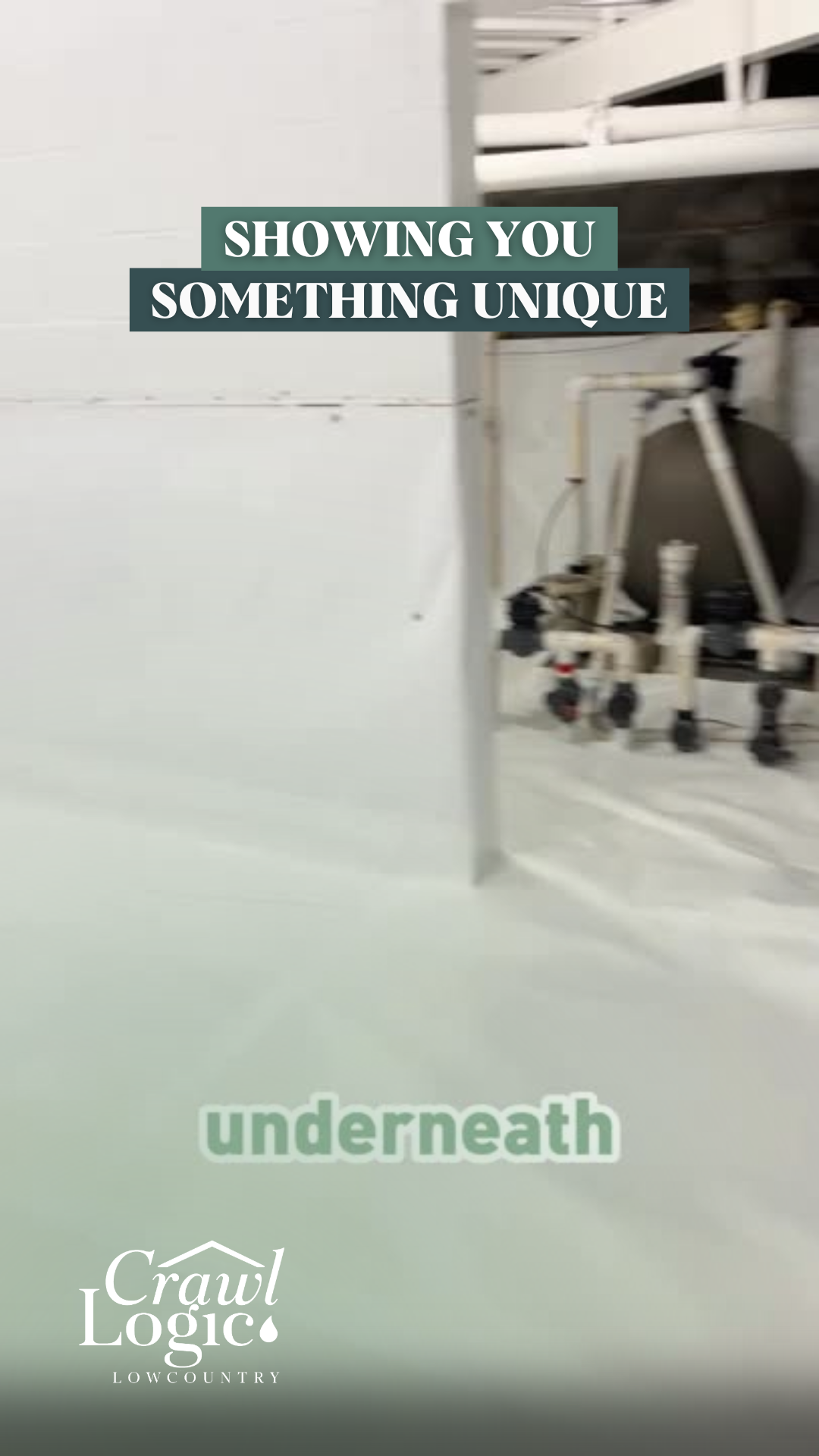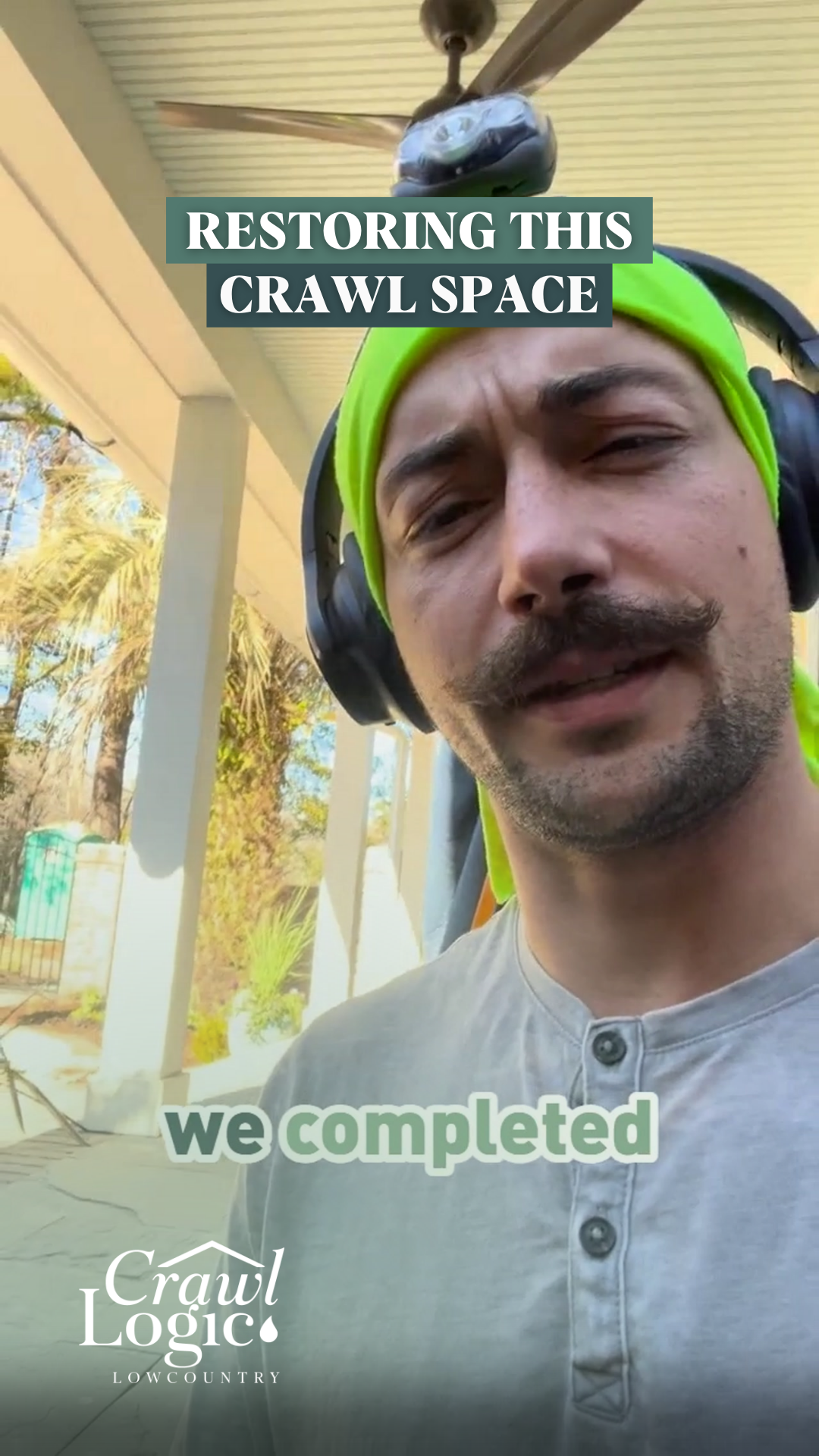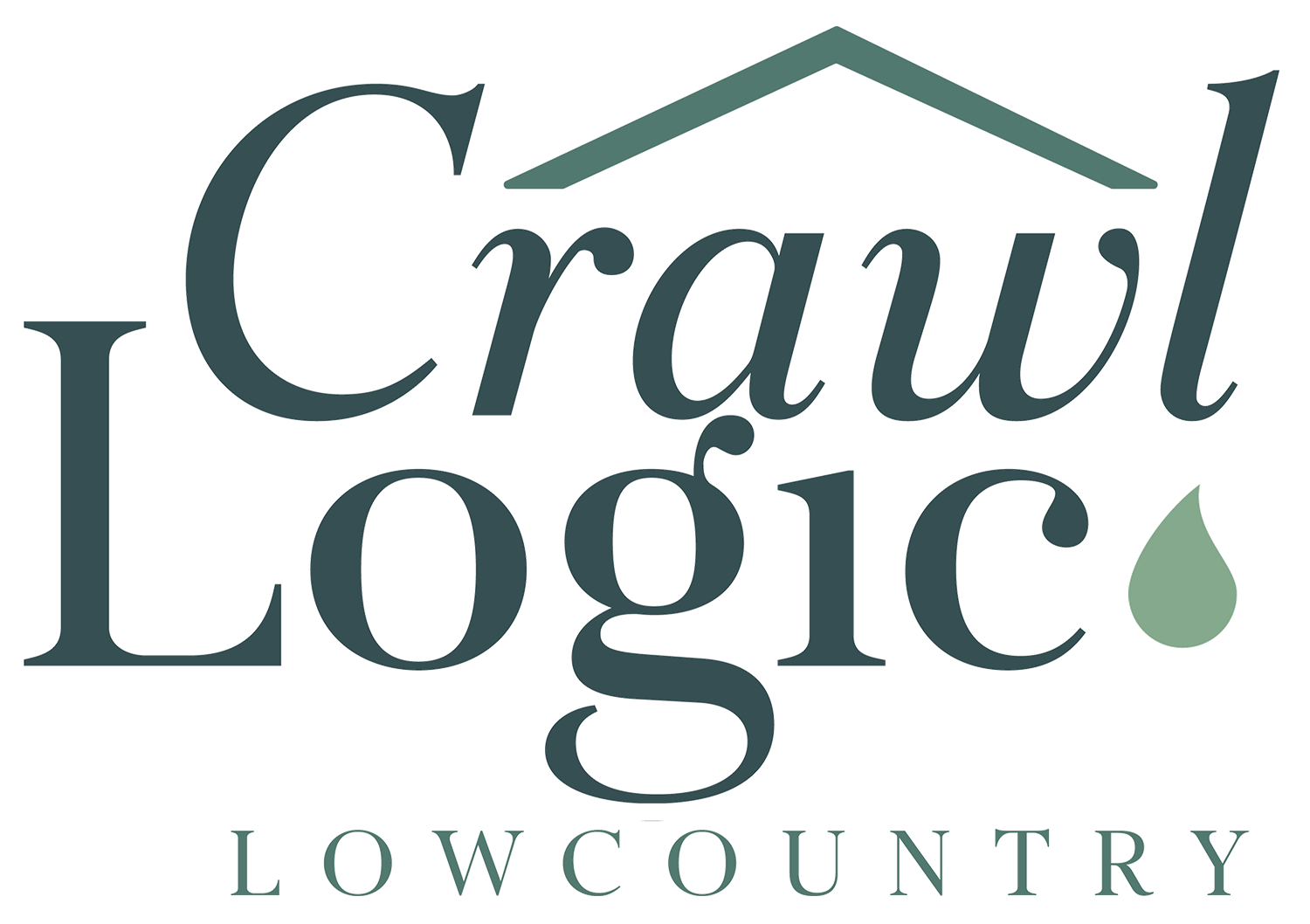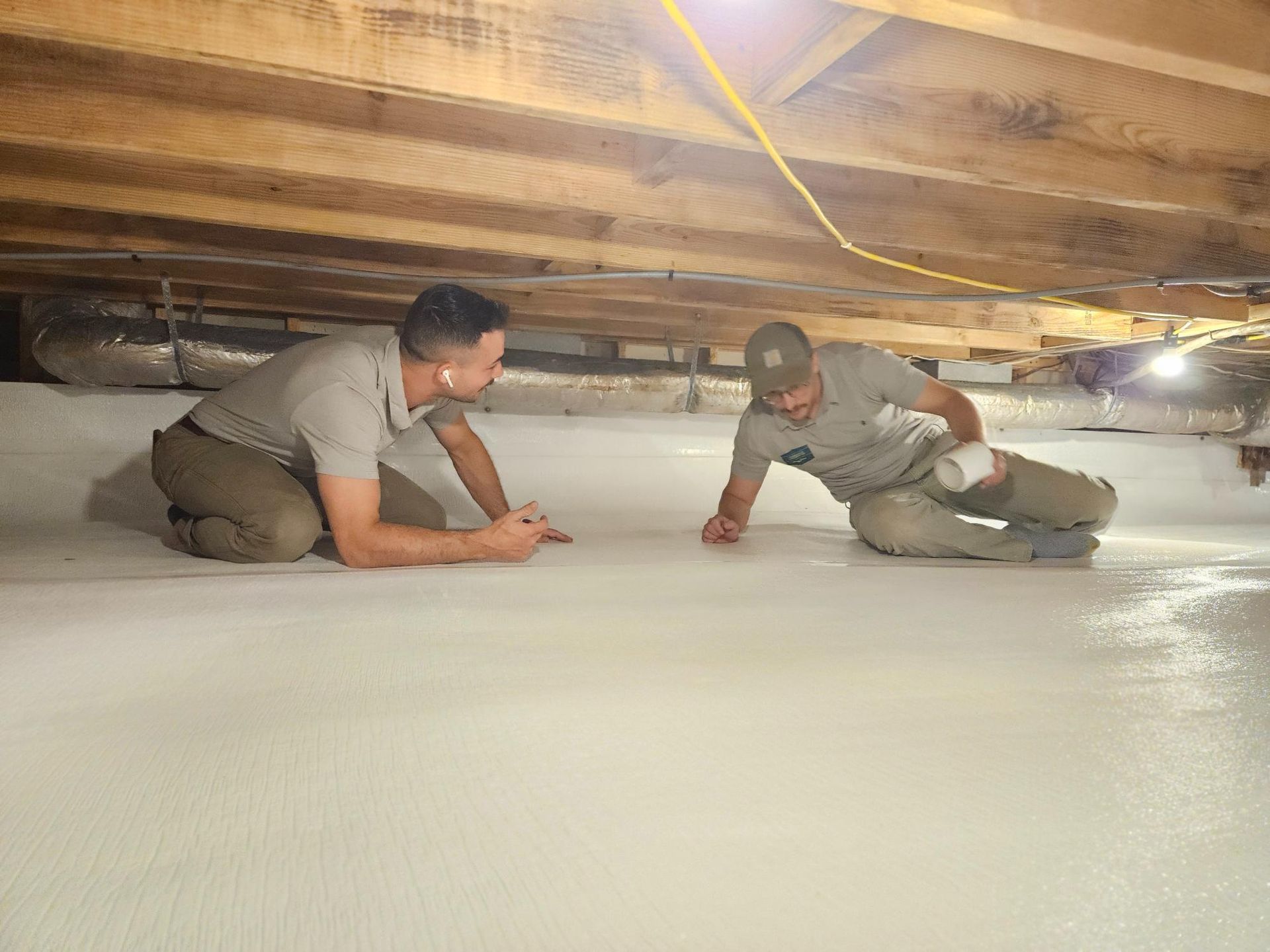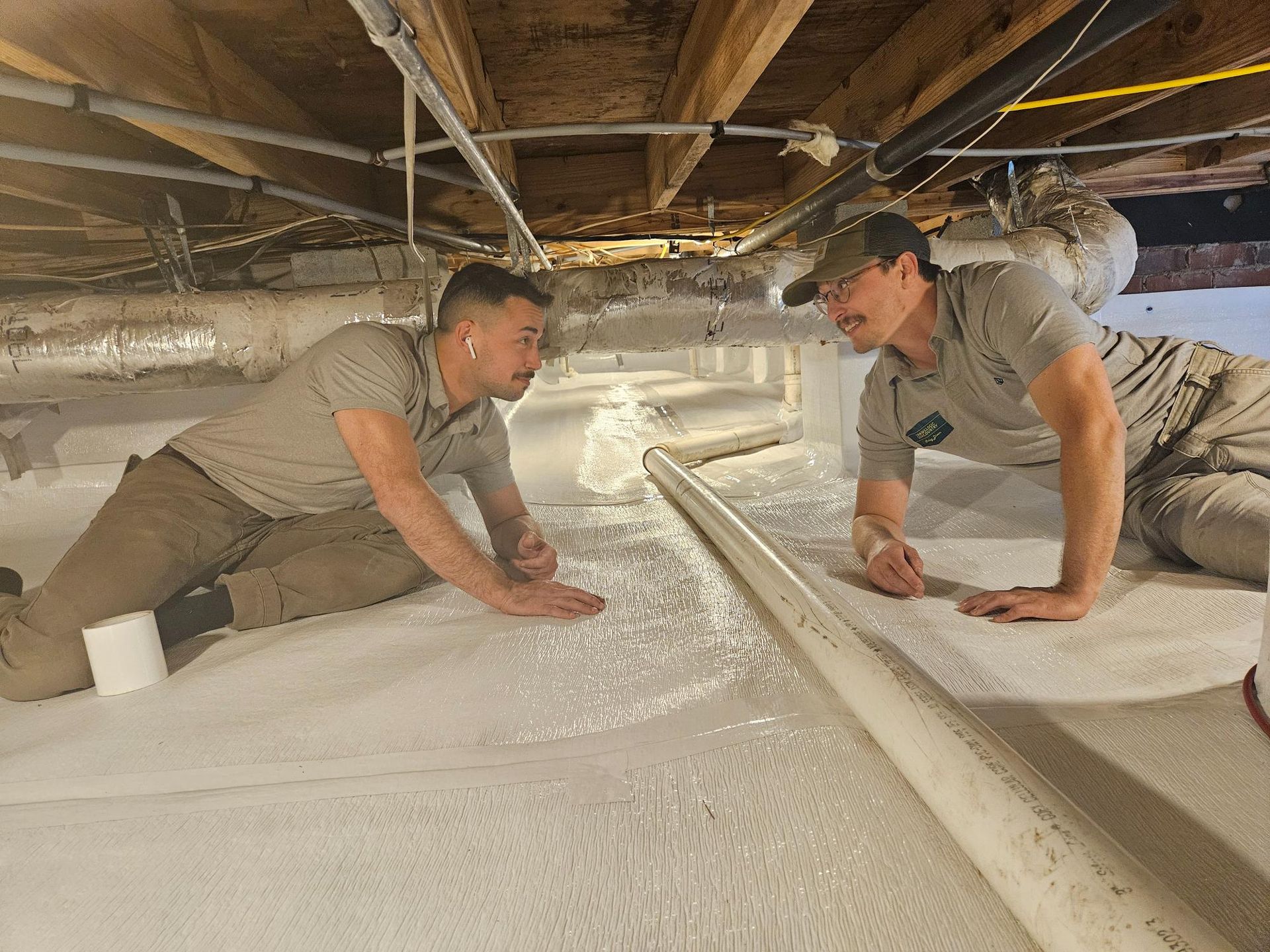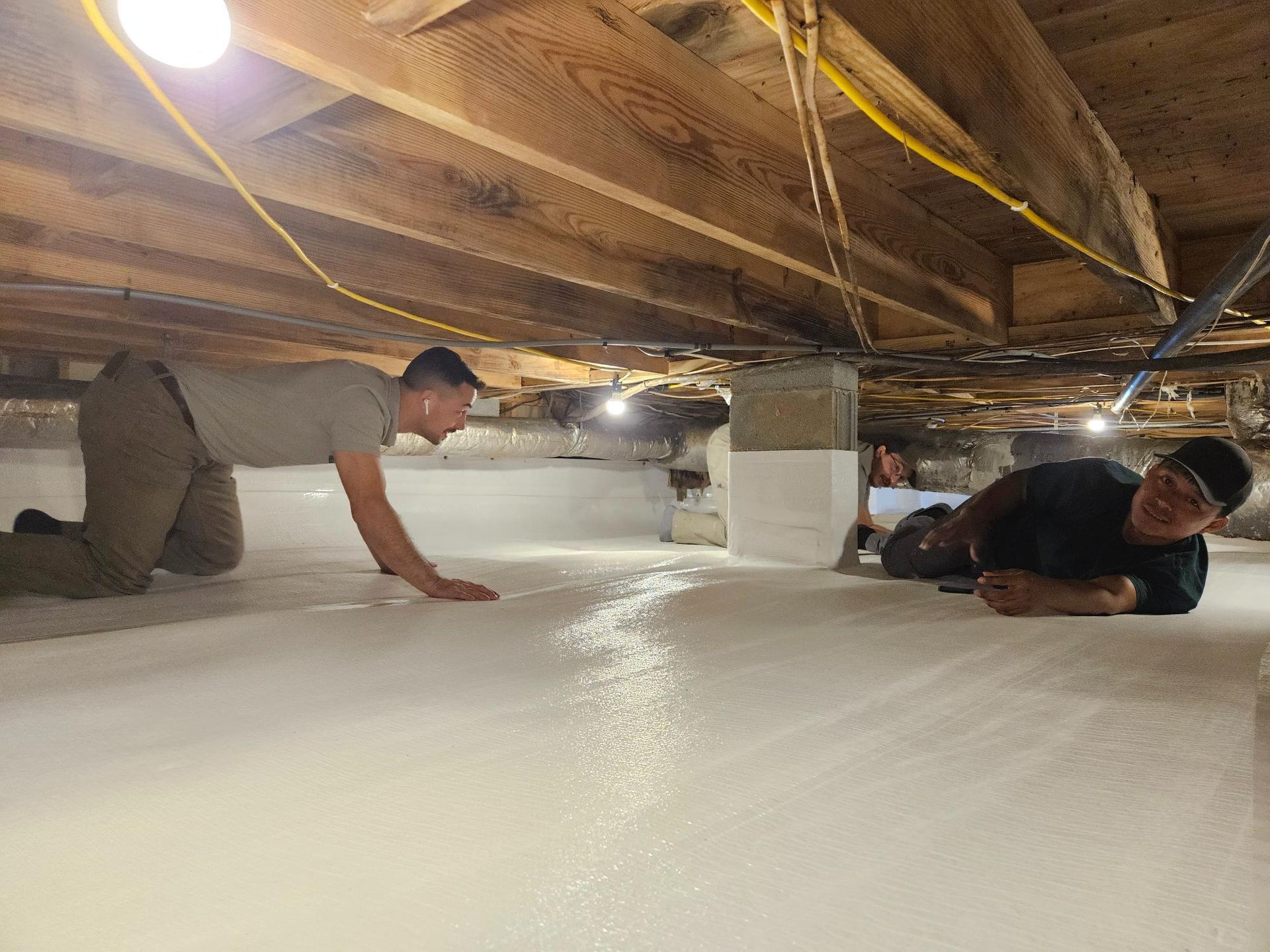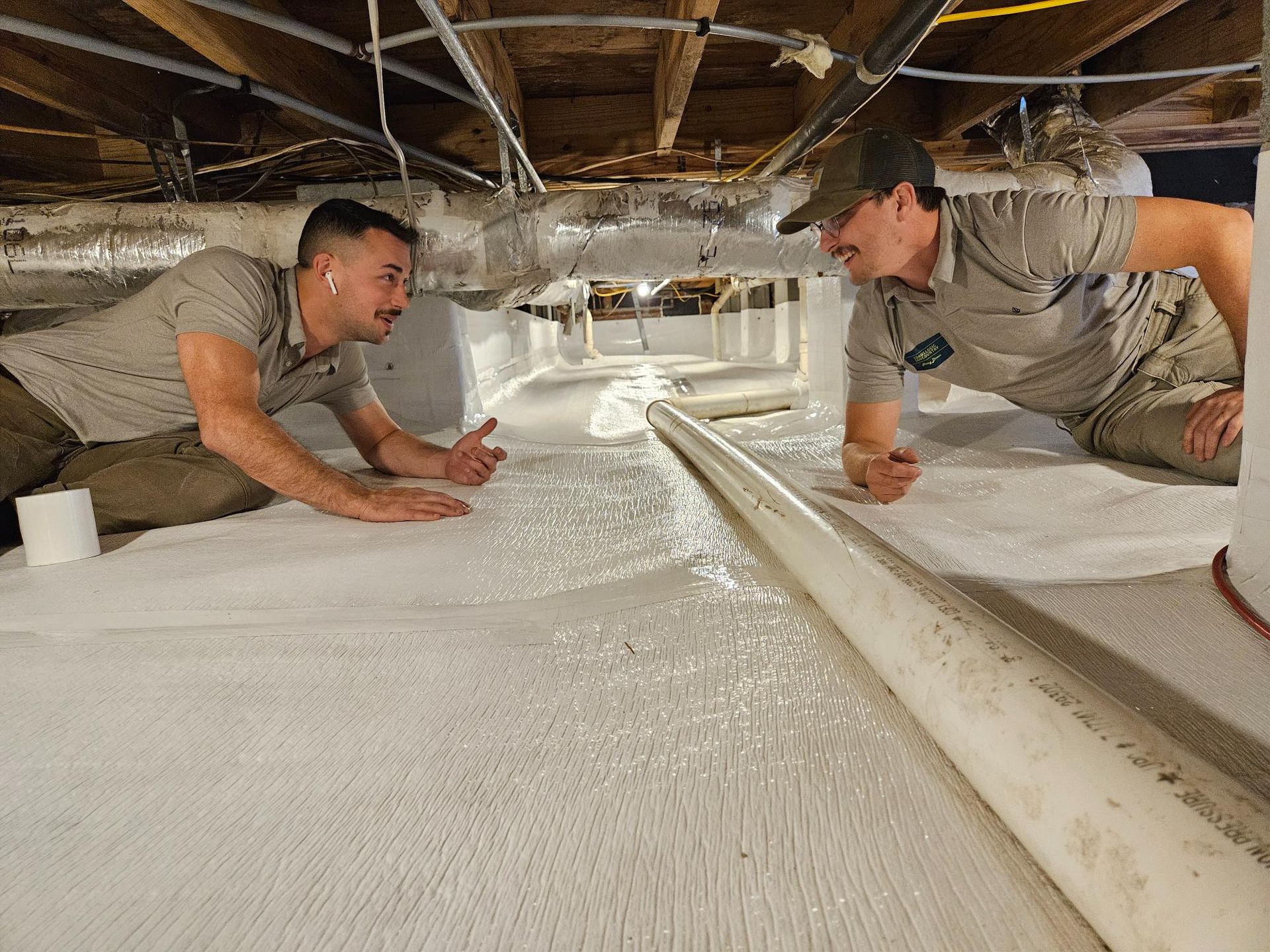This Tiny Crawl Space Mistake Just Voided Your Charleston Home's Termite Coverage
Crawl Logic Lowcountry
When Small Gaps Create Big Problems
THE 3-INCH RULE THAT'S COSTING CHARLESTON HOMEOWNERS THEIR TERMITE PROTECTION
You know what drives me crazy? Finding problems that should never have happened in the first place.
I'm in a crawl space right now, fixing another company's work, and I just found something that's going to cost these homeowners big time - even though they have no idea it's happening.
These folks paid good money to have their crawl space encapsulated.
They thought they were protecting their home.
Instead, they got a problem that could leave them on the hook for thousands in termite damage, all because of one tiny gap that shouldn't be there.
Welcome to Crawl Logic Lowcountry!
The Critical Mistake
Let me show you exactly what I'm looking at: The company installed rigid foam board insulation across the crawl space - already not our preferred method, but that's a conversation for another day. The real problem is this tiny space between the foam board and the masonry. Looks innocent enough, right? Wrong.
That gap is supposed to be at least three inches wide at every single point around the crawl space. Not one inch, not two inches - three inches minimum. And this isn't just some random requirement I'm making up. It's actually illegal to install it any other way, and here's why: Termite inspectors need that space to check for termite trails. Without it, they can't do their job properly.
The Real Impact
Here's where this gets serious for Charleston homeowners: That tiny gap just voided their termite bond. Think about that for a second. These folks are paying for termite coverage, thinking they're protected. But if termites ever damage their home, they're in for a nasty surprise - their claim won't be covered.
Why? Because the termite company's inspector can't properly check for termite trails behind that foam board. It doesn't matter if you've been paying your termite bond fees for years. One contractor's mistake just made that protection worthless. And in the Lowcountry, where termites are a real threat, that's not a risk anyone should have to take.
Why This Happens
I see this kind of mistake all the time, and it usually comes down to one of three things: ignorance, laziness, or plain incompetence. Some contractors just don't know about the three-inch rule. Others know but figure no one will notice. And some just rush through the job without thinking about the consequences for the homeowner.
When companies use rigid foam board insulation (which, again, we don't), they need to be extra careful about maintaining that inspection gap. But too often, they're more focused on getting the job done quick than getting it done right. They might save an hour on installation, but they're creating years of potential problems for the homeowner.
Protecting Charleston Homeowners
Here's what proper crawl space work should look like: Every installation needs to consider not just moisture control, but also termite inspection access. That means maintaining clear visibility wherever wood meets masonry. No exceptions, no shortcuts.
When you're hiring a crawl space company, ask them specifically about termite bond requirements. If they can't give you a clear answer about inspection gaps and local codes, that's a red flag. And if they're using rigid foam board, make sure they understand the three-inch rule - your termite protection depends on it.
The Only Way Forward
Listen, this isn't just about following rules - it's about protecting your home and your wallet. One small oversight by a contractor who either didn't know better or didn't care enough can leave you exposed to massive termite damage with no coverage to help fix it. That's not right.
At Crawl Logic, we see crawl space work differently. Every detail matters because every detail affects your home's protection. Whether it's maintaining proper inspection gaps or choosing better materials than rigid foam board, we're thinking about the long-term consequences of every decision we make.
If you've had crawl space work done recently, especially if rigid foam board was used, it's worth getting it checked. You need to know if your termite bond is still valid before you need to use it. And if you're thinking about getting crawl space work done, make sure whoever you hire understands these requirements.
Need someone to take a look at your crawl space? Give us a call. We'll give you an honest assessment of what we find - good, bad, or ugly - and make sure any work we do keeps your termite protection intact.
